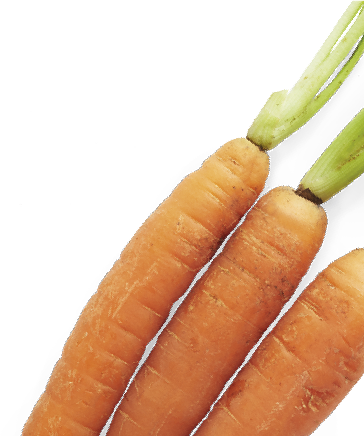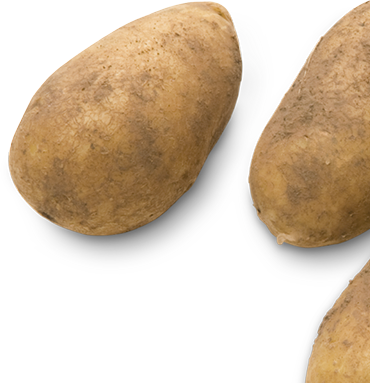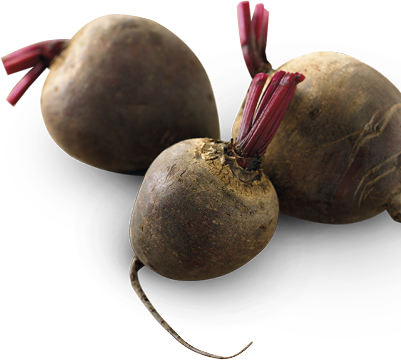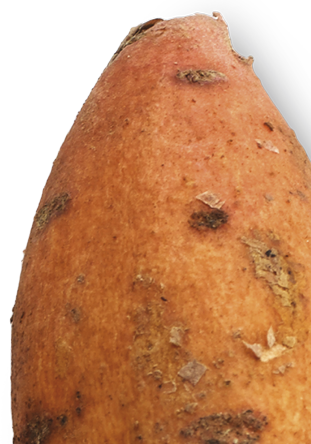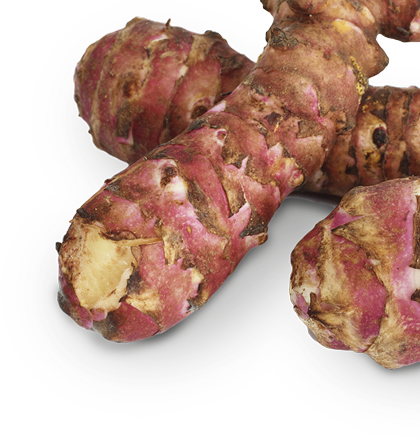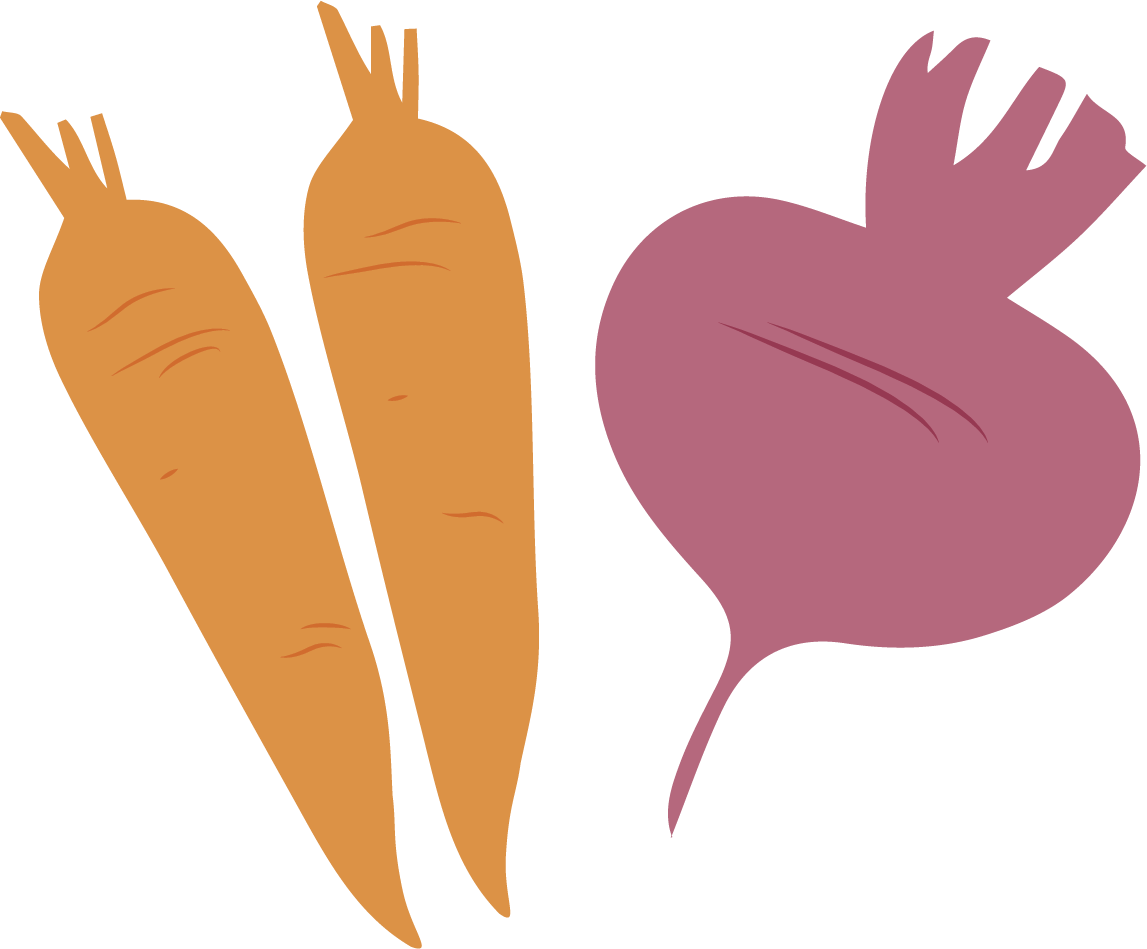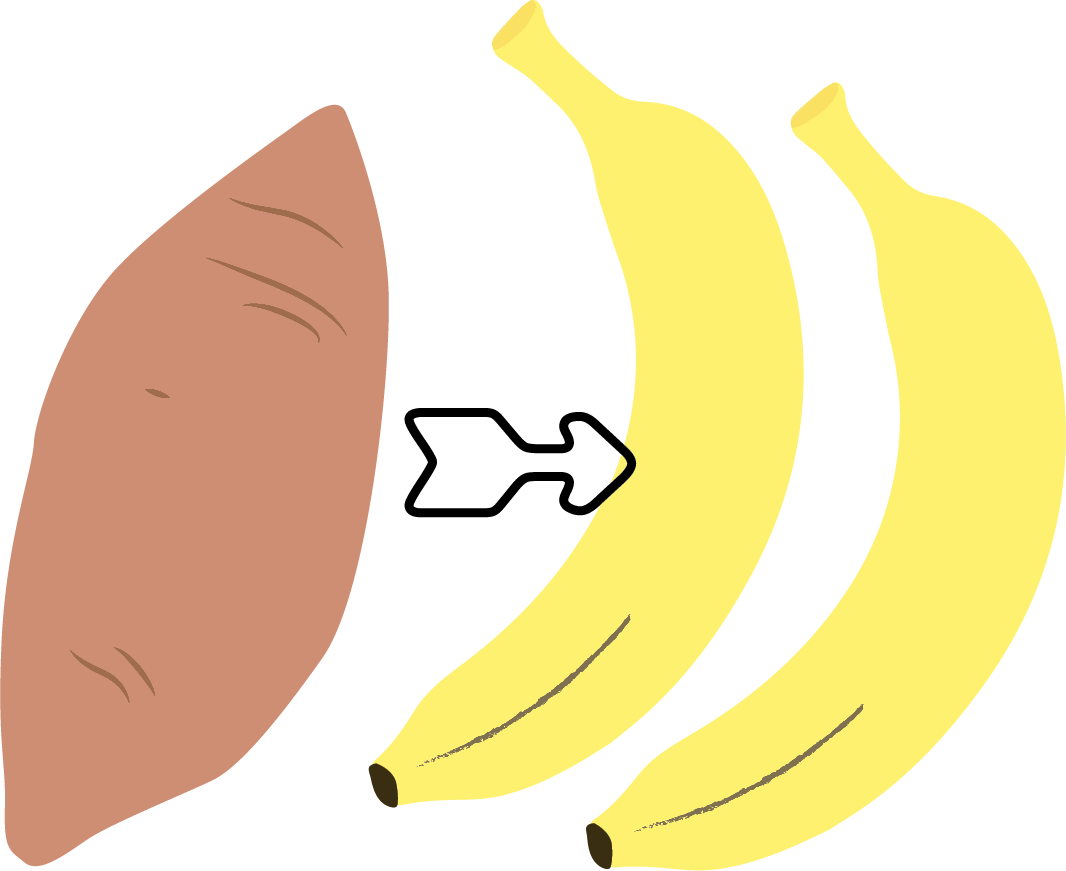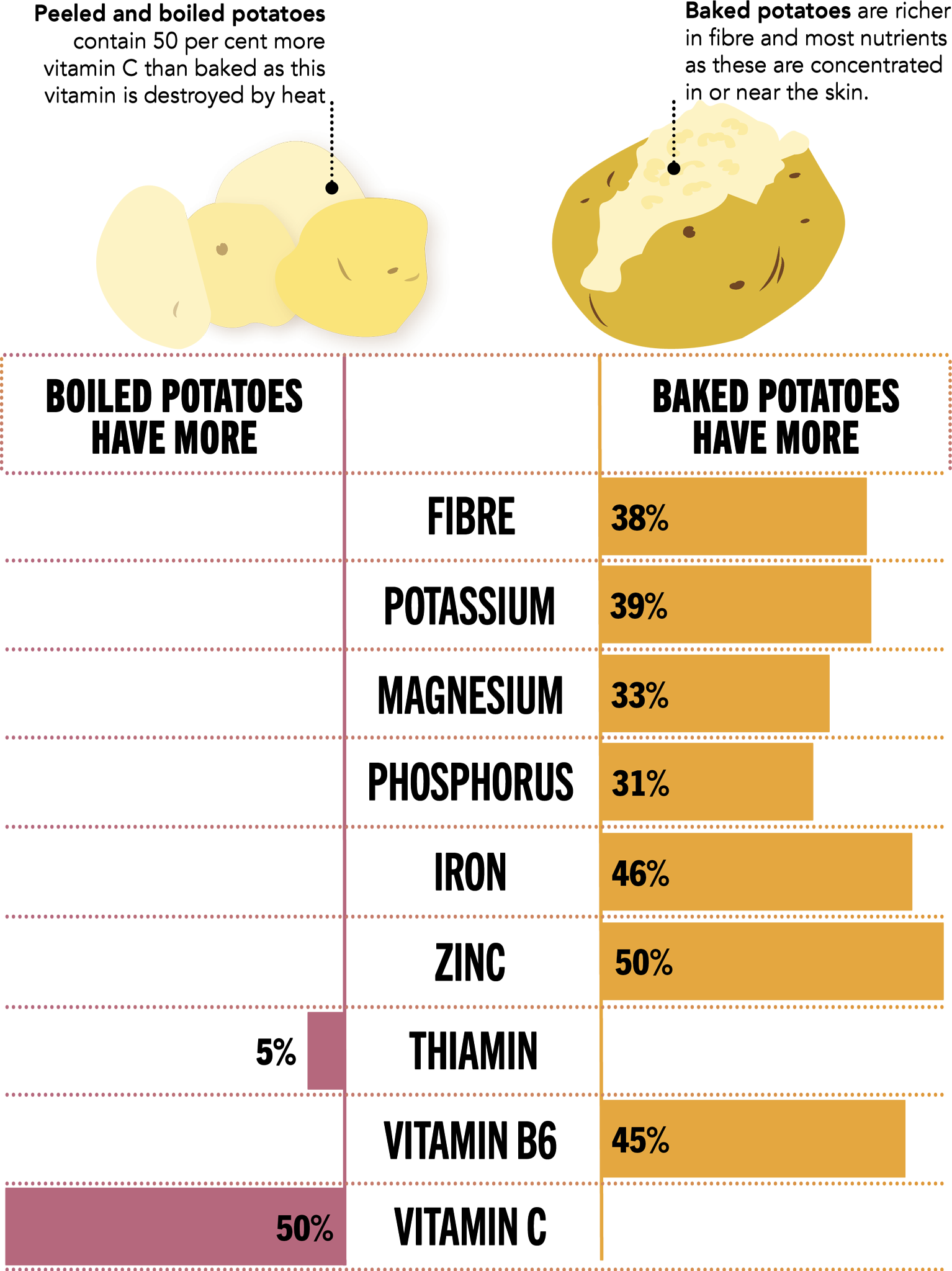-SUPERGROUP-
ROOT VEGETABLES
Root vegetables regularly feature in the diets of communities well-known for their above-average life expectancies. They are especially rich in blood pressure-controlling potassium and digestion-friendly fibre.
These popular vegetables are good sources of nutrients.
Carrots
- are one of the richest sources of betacarotene, essential for good eye health.
Potatoes
- are an excellent source of potassium, which helps regulate blood pressure.
Beetroots
- are rich in the B vitamin folate, which is needed for a strong immune system.
Sweet potatoes
- come in two varieties: orange contain beta-carotene; purple have anthocyanins.
Jerusalem artichokes
- are packed with inulin, a prebiotic that aids digestion.
Enjoy root vegetables daily.
Choose firm, brightly coloured vegetables – the deeper the colour, the more antioxidants they contain.
Keep beetroot and carrots in the fridge; store other root vegetables in a cool, dark place (not the fridge).
Some, such as carrots can be eaten raw, but most need to be cooked first.
Fibre fillers
All root vegetables are rich in fibre so they can help with blood sugar and weight control and lower cholesterol. They also contain insoluble fibre, which keeps the digestive system healthy, protecting against constipation, haemorrhoids (piles), diverticular disease, and bowel cancer. Good fibre intakes are also linked to a lower risk of type 2 diabetes – one large study found high intakes of root vegetables reduced the risk of type 2 diabetes by 13 per cent.
Scrub rather than peel root vegetables as many of the nutrients and insoluble fibre are found in or just below the skin.
Heart health
Good intakes of root vegetables have been found to protect against cardiovascular disease. One study found higher intakes of carrots lowered the risk of coronary heart disease by 32 per cent.
Cancer protector
Orange-fleshed root vegetables are rich in carotenoids such as beta-carotene. Good intakes of this nutrient have been shown to protect against some cancers. One review of studies found the odds of having oesophageal cancer were reduced by 42 per cent when comparing highest and lowest intakes of beta-carotene.
Blood pressure aid
Most root vegetables are rich in potassium, which can lower blood pressure when combined with a lowered intake of sodium. All root vegetables are also rich in nitrates, which are converted into nitric oxide in the blood. This helps to relax the blood vessels, reducing blood pressure. One review of 16 studies found having beetroot juice every day significantly reduced systolic blood pressure.
A 200g (7oz) baked sweet potato has more potassium than two medium bananas.
Nutrient-rich energy boosters
Root vegetables provide starchy carbohydrates that come packaged with fibre, vitamins, and antioxidants, making them a nutritious energy source. Potatoes are also reasonably low in calories – just 130 calories in 175g (61/4oz) of boiled potato. Compared with eating just the flesh of a baked potato, eating a baked potato with its skin provides 39 per cent more fibre, 66 per cent more potassium, 83 per cent more vitamin B6, and 80 per cent more folate. Discover how cooking can affect a potato’s nutrition below.
